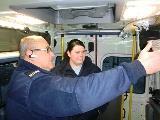ADVERTORIAL: Most of the public would be quick to claim that the NHS is the rightful jewel in the UK’s crown. This was demonstrated when it was given centre stage in the London 2012 Olympic Games, and the positive response that followed.
NHS employees also demonstrate a deep loyalty that many private organisations could only hope to achieve. Most would easily understand then, that it can be a difficult task to deliver services in partnership with the NHS. There’s a weight of loyalty and admiration borne from its heritage to live up to. This means that NHS partners need to work especially hard to earn the mantle of being both trustworthy and reliable.
It is bodies such as the Care Quality Commission that can help to play a key role in determining such a status. Making annual unannounced inspection visits it provides the public with its rigorous inspection reports that chart whether – and to what extent – each criterion has been met, including anonymous comments solicited from staff and service users of all the care providers it has inspected.
NSL Care has a great track record in this regard, but given that it has been operating in the industry since 1989 one would hope so.
NSL Care, part of the NSL Services Group, provides non-emergency patient transport with the NHS throughout the UK. It also works with NHS ambulance service to provide resources in the event of a major incident, as well as special blue-light services for Birmingham Women’s Hospital neonatal unit.
Among its key people are the chief ambulance officer and the clinical director, who each have over 25 years experience in patient transport and nursing respectively.
In January it took on two new apprentice ambulance care assistants (ACAs) and NSL Care is already delighted with the results these keen care fledglings are delivering. Just six weeks into her apprenticeship and Sara is already reaping the rewards.

She is well suited to her role as an apprentice ACA; she is caring and enjoys helping people, and likes to know that she has made a difference to their day. But it’s not just the patients who are benefiting from Sara and her ongoing training; there have also been personal and professional benefits. She says: “I feel I have come out of my shell a lot already, and my confidence is at an all-time high.”
One factor driving NSL’s track record and the positive results that its keen apprentices are already showing is its view of itself as a people business; it puts people first − those it serves, and those who serve it − and seeks to engage meaningfully with both groups at every opportunity. This shouldn’t be a surprise for an organisation that has not only attained the highly prized accreditation of being an Investor in People, but also one of the very few that has achieved the Invesotrs in People’s “gold” status − the highest level available, and an award that is only held by a fraction of UK companies. One of the things gold status demonstrates is that an organisation has learnt to listen well to its key stakeholders and sees its staff’s learning and development as a key priority, and continues to invest accordingly. Ongoing learning and development builds confidence and this is rewarded and reinforced when confidence breeds bright ideas that are then keenly received.
The frustrations of those directly employed by the NHS can be seen reflected in its staff engagement index. The 2011 index, which was published in 2012, showed that fewer staff felt able to make suggestions for improvement in 2011, (69%), than in 2010 (70%). The percentage of staff reporting that senior managers encouraged them to develop new ideas was just 24% in ambulance trusts. One might wonder what new ideas could be developed with a service that many might see, paradoxically, as static inasmuch that its only objective is to transport patients from one point to another as efficiently as possible. Yet this would be wrong.
Most of NSL Care’s staff transferred into the business from the NHS and the company relies heavily on the skills, commitment and expertise that come with these colleagues. Yet, as mentioned, NSL also provides an environment in which expertise and ideas meet and colleagues are always encouraged to contribute in order to continuously improve the services it provides, and to help keep staff engaged in the process of improvement.
Kate Lawson, one of NSL Care’s most respected managers, worked for the NHS for over 15 years. Not long after she joined NSL Care, back in 2006, she was quick to see how it could increase the efficiency of communications within the hospital setting by introducing a “floor walker”. The purpose of the floor walker is to take pressure off the hospitals, by providing a focal point and vital link between the hospital and the patient transport service. It gives the hospital management and NSL Care’s control function advance warning of actual and potential delays on the day of discharge activity. It was quickly apparent that this enabled both parties to take a proactive approach; to plan the day’s work through having prior warning of the level of discharges, ensuring it was able to flex its resources to meet the requirements more efficiently. It also maximises communication, and builds positive working relationships throughout the hospitals, while also providing a better understanding of what each party does − and, perhaps more importantly, how it does it.
Consistency is key though, and NSL Care has its own audit programmes in place, ensuring an appropriate standardisation across its growing business. However, one size does not fit all and NSL is careful not to stifle the individual characteristics of each of its NHS partners. Alastair Cooper, NSL Care managing director, agrees: “It’s very important that words aren‘t just bandied around; that if you say you’re a people business, and are mindful of all the values – both collaborative and respectful of individuality – that this ethos involves, then you have to be demonstrating that day in, day out, which involves a methodical and highly organised approach.”
A practical man, the organisational skills required to oversee large-scale patient transport services are something that Cooper has in abundance. But when we learn that he also serves as a colonel in the Territorial Army, we can easily see where his skills have been honed. He adds: “Engagement and good ideas are key. From the moment we partner with the NHS in any particular area, we know our first few exercises are to get to know the area, the communities, the people who will be coming to work with us, and to then ask for their ideas, which isn’t always easy; confidence is required. This has to be repaid by listening very carefully to those ideas, and then help those that are feasible by garnering as much expertise as we can to help make those ideas work. And it’s only by continuously improving − continuously listening − that a business claiming to be people-centric truly deserves the title.”
NSL Care is in an enhanced position within the non-emergency patient transport market. A proud culture where ideas meets expertise continues to pave the way forward for innovative partnerships between the private and public sector.
























No comments yet